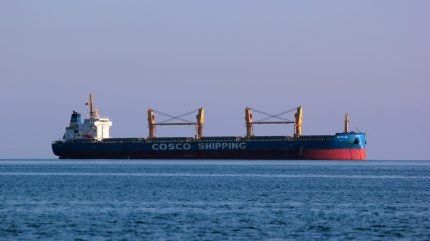
Chinese maritime giant COSCO Shipping will add 54 new vessels to its fleet after signing two major shipbuilding deals for new methanol dual-fuel container ships and bulk carriers.
The contracts include a record 42 bulk carrier orders by the company’s subsidiary COSCO Shipping Development, the largest shipbuilding and leasing transaction for the business since it was created during COSCO’s merger with China Shipping Group in 2016.
The 14.3bn yuan ($2bn) investment, construction and leasing agreement includes an investment with COSCO Shipping Heavy Industry (CSHI) for 20 bulk carriers and an investment with CSSC Chengxi for 22 bulk carriers.
Scheduled for delivery between 2026 and 2027, the bulk carrier order includes five 64,000t ships, two 82,000t ships, and 35 80,000t ships, including some methanol-ready bulkers.
The separate 12-strong methanol dual-fuel vessel order was signed by the primary COSCO Shipping business and based on a new generation of vessels developed by the company jointly with CSHI and the China Shipbuilding and Ocean Engineering Design and Research Institute.
Alongside being ready for the more environmentally friendly fuel, the 14,000 TEU ships are also designed with invisible bulbs and energy-saving devices, an air lubrication system for the hull, and fitted with intelligent systems developed by COSCO to comply with energy efficiency regulations.
Adding to COSCO’s existing orderbook of methanol-ready vessels, the orders represent a continued interest in the fuel by the company during a period of re-evaluation for some carriers, with Maersk recently easing off its methanol investments to deploy a multi-fuel strategy for its new fleet.


